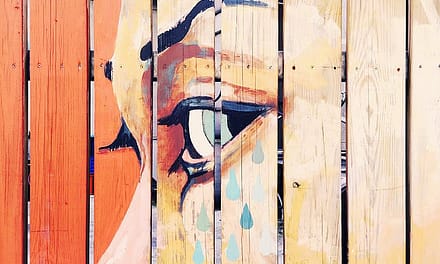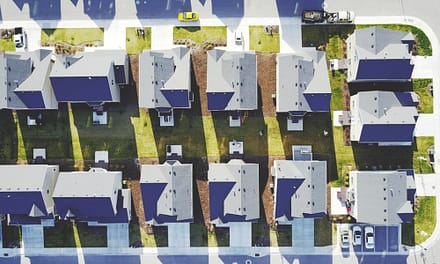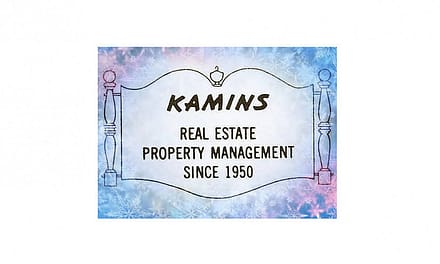In this article, I am discussing the things to consider before concreting of a driveway as a property investor or developer.
When talking about concreting a driveway, there are always some questions that come to our minds. For instance,
- What are some things that need to be considered when concreting a driveway?
- What are the different options available for building a driveway?
- When concreting a driveway, what are the different types of concretes available in the market? and
- Many more.
To answer these questions, I did a deep dive. There are also a number of pros and cons to each decision you made as well. This article will address all these questions, along with a number of findings on each topic.
Before anything, let’s define what I mean by a driveway.
What is a Driveway?
First, let’s look at what is meant by a driveway.
A driveway is a type of a road or path that routes to a building. Usually, it is a privately-owned path.
The purpose of a driveway is to keep the main road clear for the traffic and provide access to a property from the main road.
In residential real estate, the driveway generally leads to a garage or a house. People also considered it aesthetically pleasing.
Options For Building a Driveway
Apart from concrete, there are also many other options for constructing a driveway.
Let’s focus on those options now…
1. Gravel Driveways
Gravel is a favorite choice among the people of America. It’s famous as an option in the country.
The cost of installing a gravel driveway is very low.
It’s quick to install and available in many colors.
Tip: This article explains how property investors raise capital for developments.
Drawbacks
- Not good for snowy areas.
- Requires a lot of maintenance.
- Possible damages to the vehicles drive on it, as a result of stone ‘chips’.
2. Pavers
Paver is a very versatile option. It comes in many designs. It has a very low maintenance cost and can last up to 30 to 40 years.
Drawbacks
- It’s an expensive option as compared with the other materials available in the market.
- The color can fade over time.
3. Asphalt Driveways
Asphalt is a popular choice for North America. It’s a very economical option. It works really well in snowy areas.
It has a black color that absorbs heat that helps to melt the snow.
Drawbacks
- It is only available in black color.
- It requires sealing every 3 to 5 years.
4. Brick Driveways
The brick driveways are available in many patterns and colors. You can get a very good resale value for the property if the bricks are installed in it.
They are a life-time investment if installed properly.
Drawbacks
- It’s a costly option.
- They need to be washed twice a year.
- They also need to be sealed after every wash.
5. Grass
It’s an eco-friendly ‘technology’ used for driveways.
Drawbacks
- It requires high maintenance.
- Weed can grow in the grass if left without proper care.
6. Basalt Paver Tiles
Basalt is a type of rock, which is very hard and dense. It is also known for its durability.
They are generally used in modern style properties. Adding a good sealant before installing the stone will help it in strong weather.
It will also make it water-resistant.
Drawbacks
- It’s a natural material, so it only comes in 2 colors.
- If the discoloration occurs on the tile, the stains will be permanent.
7. Shell Driveways
A shell driveway is an eco-friendly and a natural choice. It is made up of crushed shells. A shell comes in 3 basic categories that are clam, oyster and scallop. It can be used for good draining purpose.
Drawbacks
- It comes in 3 colors.
- It’s difficult to find.
- The life span of shells short.
- They are not readily available, which makes it costly.
8. Pervious Concrete
It has a porous surface which allows the water to run through. It is an environmentally friendly option, as well.
Drawbacks
- The surface can become clogged, which can create issues of drainage over time.
9. Cobblestone Driveways
A cobblestone is made up of paving material. A limestone, basalt, granite or any other type of stone can be a cobblestone.
Pros
- It adds to the resale value of the property.
- It can be easily repaired.
- It is also durable in nature.
Cons
- A difficult installing process.
- Requires sealing.
- Not a lot of options to choose from.
- Not good for chilly areas.
10. Concrete Driveways
Concrete is a type of material that is used in making the driveway.
Pros
- It’s easy to install.
- It’s cost-effective and commonly used.
- It’s known for its durability.
- Its requires low maintenance.
- There are many colors and textures available in the concrete.
Cons
- It’s not suitable for extremely cold weather.
- It can crack and stain over time.
- It takes time to dry out.
- Extremely slippery during rainfall.
Types of Concrete Driveways
There are many options available in terms of designs for concrete driveways. In this topic, I will be talking about some of those types.
1. Plain or colored
In today’s world, everything is sleek and modern. Sometimes, sleek and modern is not the answer, when it’s come to concrete, especially in the real-estate business, where good old things have their own values. We can’t deny the appeal of simple designs.
Just like these things, when choosing the type of concrete you want to use for your driveway, you can’t go wrong with the simple plain and colored one. There are a variety of colors to pick from; from neutral to bright.
A sophisticated outlook to the whole aesthetic of your property. Plain or colored concretes are very simple to install and are also highly durable.
2. Exposed aggregate concrete
With the of passage time, exposed aggregate concrete is becoming a favorite among the people for the type of concrete they want to install. The reason for its popularity is not only its high durability, but it is also very attractive.
It comes in a lot of textures and colors to choose from. A mixture of stones, pebbles with concrete can create a beautiful design. It will enhance the outlook of your property. So, look at the theme of your property, the kind of textures you have used then consult with your contractor. By mixing, you can create the style you want.
3. Stencilled concrete
If you want a look of brick, paving, tiles or stones without going out of your budget or compromising the durability factor of the concrete, search no more. Stencilled concrete is your answer.
When the concrete stiffens by pressing the desired design on its surface, you can get the look you want without paying the extra penny for it.
The maintenance aspect also remains the same. It looks real. You won’t be able to tell whether you have used concrete or another type of material.
For unique designs ask the installer. There are many options to choose from.
4. Slate concrete
Slate is another type of concrete. As the name suggests, slate is a design pressed on a concrete. The slate-like design is stamped on the slabs. As a result, slate-like concrete is created.
To enhance the concrete, you can also seal it with a glossy finish, for a premium looking driveway without a hassle of high maintenance.
Like other types, it also has a variety of other textures and designs to choose from.
Concrete Driveway in Rain – What the Effect of Rain On a Concrete Driveway?
In many cases, when a new driveway is installed, rain can really damage the surface of the driveway. In the case of a concrete driveway, when the concrete dries out, it won’t be damaged by the rain. Instead, the rainwater meant to actually make it stronger.
Best Season for Concreting a Driveway
When installing any type of driveway, you should really wait for the weather to be right. That is because choosing the best season can really make a difference, consequently increasing the life span of the driveway.
For concrete, the best time of the year is fall (autumn). The fall season provides the best temperature for the driveway to be installed. Secondly, the Spring and then the Summer. Winter is not a good time for concreting a driveway.
5 Things To Consider Before Concreting a Driveway
Here, we are looking at 4 key things you need to consider when installing a concrete driveway.
1. Purpose – Why You Need a Driveway?
The first most important thing you need to know is why do you need a driveway and a concrete driveway. It could be for parking the car or even enhancing the visual appeal of the house.
When you have decided about what you want to get out of your driveway project, then there are other factors to consider.
The concrete driveway is most famous for its durability. For heavy equipment, concrete is a way to go as it is more appropriate for moving heavy equipment and to move the animals easily.
The amount of traffic, you intend to have on your driveway will help in making a choice regarding the type of concrete you want to use.
2. Budget – How Much You Willing To Spend?
As I mentioned above, you need to have a clear understanding of the type of material you want to use in your driveway. Still, it won’t matter if the material is expensive and doesn’t meet the criteria of your budget. So, it is very important that you figure out your budget before you start asking for quotations.
Another key factor affecting your budget is the size of the driveway. While looking for the material, the size of the driveway will also matter as more area will require more material.
Try to find the best possible material you can find within your budget. Look for the installer that meets your requirements. Don’t just go for the inexperienced installer just because they are cheap. Otherwise, you will get what you paid for.
Always, find the installer you can truly trust and tell them about your requirements and expectations in writing (e.g. by email). Be very specific when telling someone what you want. It will help you a lot during and after the construction.
This video explains how concrete contractors charge for their work and their thinking process.
3. Designing – Match It With The Big Picture
While choosing the type of design for your driveway, select the design that matches the aesthetic of your property.
For example, if you have an old property, the modern style of driveway won’t suit. Similarly, for a modern style property, a Victorian-style may not be the best way to go. Pick the design that meets your needs.
Also, look at the space you are working with. For a house, when constructing a driveway, make sure there is enough space for the vehicles you want to park.
For rural areas, there is more space to work. But in suburban areas, designing and shaping a driveway is a crucial part. It obviously requires more planning.
Discuss all your concerns with your contractor while making the decision. Choose the best layout for it.
As driveway is a first thing someone sees when entering your property, it needs to match with façade of the property and at the same time should be suitable for the property.
4. Local Council Regulations
In Australia, local councils play a very important role when constructing a driveway. They can control the type of material to use for each type of driveway and construction requirements. So, you can only use the concrete that is permitted by your local Council.
Consult with your local council’s Development Department when selecting the type of concrete you are using to avoid any hurdle later on.
5. Maintenance
In this paragraph, I am focusing on maintenance as its the most important step. If you are willing to commit to giving proper maintenance to the driveway, only then get it.
Out of all the types of driveways, concrete is the only that works very well with minimum maintenance. It also remains good to last for many years. You won’t have to worry about the maintenance aspect that much, if you select a concrete driveway.
However, remember you only have to seal the concrete driveway once in every 5 to 10 years. A concrete driveway can last up to 25 to 30 years easily.
In the previous paragraph, we discussed how long a concrete driveway can last given proper maintenance. Now, let’s focus on how to do that maintenance.
Here are some suggestions to make you concrete last a long time:
- Focus on cleaning.
- Seal the concrete. It helps in maintaining the durability of the slabs but also make it look good. There are many options available but remember to go with the manufacturer’s design.
- Don’t experiment with different chemicals. It can damage the surface.
- If the surface is stained, remove the stain immediately.
Conclusion
To sum it all up, getting a driveway is a lot of work. It requires a lot of planning before the construction.
A driveway is the first thing someone sees when they enter a property, so be very careful when choosing the type of concrete you want. Doing a thorough investigation of a concrete and its types, it is one of the best in the market.
Most importantly talk to your contractor and run through all your questions. Remember, trust in your contractor can help you a long way.






0 Comments